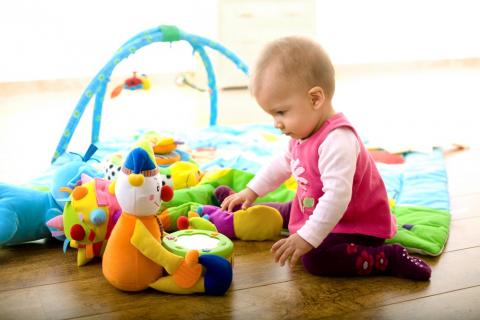
Improving the Detection of Neurodevelopmental Disorders
The international Tech-Toys project, led by the Child and Adolescent Psychiatry Service, the PIRoS team at ISIR and the Origyne Medical University Department, has won the European call for proposals for PerMed2021. Its objective is to improve the early detection and management of neurodevelopmental disorders.
One in ten children in the West has a neurodevelopmental disorder. These disorders, which have significant individual, family, and societal implications, typically affect multiple developmental domains, including sensory-motor, cognitive, communication, learning, and behavior. Despite their better understanding, diagnosis and management of these disorders are often delayed, several months after the first clinical signs are observed. Their early detection is one of the main challenges in pediatrics today because early intervention improves the prognosis.
For this reason, Prof. David Cohen, head of the Child and Adolescent Psychiatry Department, and Prof. Mohamed Chetouani of the PIRoS team at ISIR have developed the international research project Tech-Toys, in partnership with the Stella Maris Foundation in Pisa, the Ludwig Maximilians University in Munich and the Technical University of Istanbul. “We have been working for many years with the PIRoS team on new technologies and on understanding and modeling social signals and human interactions in the context of neurodevelopmental disorders," explains David Cohen. “We have created a dedicated space with experimental test rooms and robotics within my department. We have already conducted several research projects together. Thanks to this long collaboration, we were able to set up the Tech-Toys project, with the goal of providing new tools for the analysis and modeling of infant behavior and interactions during neurodevelopment."
The Tech-Toys project is based on toys developed by the Italian start-up Khymia and the Stella Maris Foundation in Pisa, which are adapted to the infant's natural environment and equipped with motion and pressure sensors. By using these toys, researchers will be able to follow infants at high risk of developing developmental disorders while in their family environment. They will be recruited in the neonatology unit of Prof. Laurence Foix-L'Hélias of the ORIGYNE medical-university department. For one year, the researchers will collect data on the babies' fine and early motor development, as well as on gaze, prosody and social competence, in their natural interactions with parents. "From this data, which will be analyzed by new artificial intelligence (AI) algorithms, we will be able to identify dysfunctional clues in motor skills and interaction that are predictive of pejorative developments," explains the psychiatrist. These clues will allow us to develop specific data profiles (numerical biomarkers) for the main neurodevelopmental disorders. These numerical biomarkers will then be tested and compared with standardized clinical scales and neuropediatric and child psychiatric assessment of infants. At the end of the project, researchers using AI will evaluate which combination of biomarkers produces the best prediction for early detection of neurodevelopmental abnormalities in the first months of life.
The data will then be provided to clinicians (pediatricians, neuropediatricians, child psychiatrists), so that they can monitor children's neurodevelopment and begin tailored and personalized early intervention. "In the first months of life, brain plasticity is high. Therefore, the earlier, the more intensive and the more adapted the intervention, the more we can change the trajectories of the children". The results of the project will open up new horizons for the early, personalized and home-based detection of neurodevelopmental disorders as well as the optimization of their management.
1 Mohamed Chetouani is a member of the PIRoS team and is in charge of the national action on autism and new technologies within the framework of the fourth Autism Plan. He coordinates the Living & Learning Lab Neurodevelopment (LiLLaB) of the National Strategy for Autism.
2 The Institute of Intelligent Systems and Robotics (Sorbonne University, CNRS, Inserm).
3 Extremely premature babies and newborns with brain damage and/or suffering.
